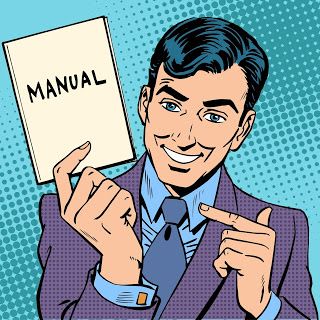When a Beta Reader Says No
The manuscript, a second volume of my ongoing memoir series, was done and sent to my beta readers. I felt so proud, constructing essays using some of the tools I learned in Julie Otsuka’s Buddha in the Attic and a few essays I studied in the journal _A__Public Space_.
“I like what you’ve written,” one beta reader wrote in an email. “My question is,” she continued. “Who are you writing for?”
Her question floored me. I had countless bylines, varieties of writing experience, two completed screenplays and one completed novel and more than a passing understanding of how the English language works. Not once had a beta reader ask me who I was writing for.
The second volume seemed no different. I was writing for my readers.
Like me, I thought the tired cliches used to describe transsexual experiences like mine bored them. Like me, I thought they wanted a complex narrative about being born female then transitioning to male, and well before the internet, too. Like me, I thought the singular and sole use of the first-person in the emerging, but still small, body of transgender and transsexual literature made them weary.
Didn’t they want second- and third-person pronouns used to explore the difficult, fraught yet wonderful experiences that center around living in a conundrum? (How does a 32-year-old lesbian become a man?)
I know I did. They did, too, right?
I care quite a bit about people reading what I write, reveling in every story people share about how my writing touched them. Crass as it may be, I do want to move people, a nearly impossible task if I’m only writing for myself.
My beta reader’s response set me back on my heels, and longer than I care to admit. Professionals should recover quickly, from even the most devastating feedback.
Something about the style of the manuscript combined with her question forced me to accept an embarrassing truth. I wrote this manuscript for myself, only.
I was that guy on a first date who tires of listening to his date. Enough about you! Let’s talk about me.
I was also the guy who forgot the importance of story telling. Experimental fiction and nonfiction attracted me for a variety of reasons. Narrative structures are usually the first thing to go in experimental writing.
Virginia Woolf has written one of the very best anti-plots in English. Mrs. Dalloway taught me a lot about time in narratives and the arbitrary nature of literary realism.
But Ms. Woolf won’t be remembered ever for her compelling plotting skills.
What I realized after pondering my beta reader’s question, reviewing my dogeared copy of T_he Story Grid_ and whining to myself about how so very hard - hard, I say!- writing is, I understood something very important for my career as a writer: people like me, who have had their lives dissected in medical journals, scorned in the media and degraded from the pulpit need well-written stories. Our lives may depend on it.
Axiomatic, I know. But experimental literatures works on the principal that the thing being experimented on has a whole body of positive words somewhere else. Transsexuals like me don’t have the luxury of an already existing body of literature where we are loved and feted and seen for who we are.
How I write anything is a choice, and while I could choose from a variety of tools, I have opted to rewrite every essay using the power of the age-old three-act structure to share my experiences. This kind of storytelling touches us all still.
